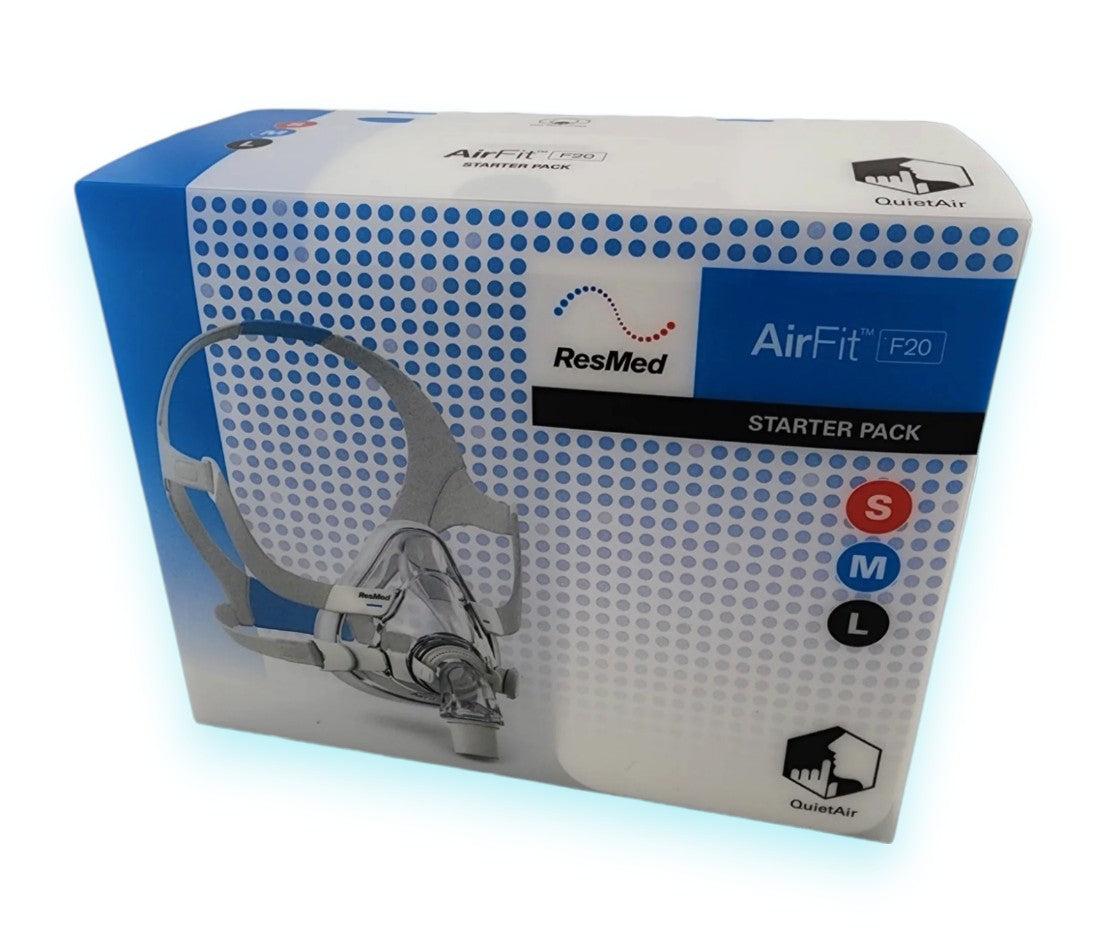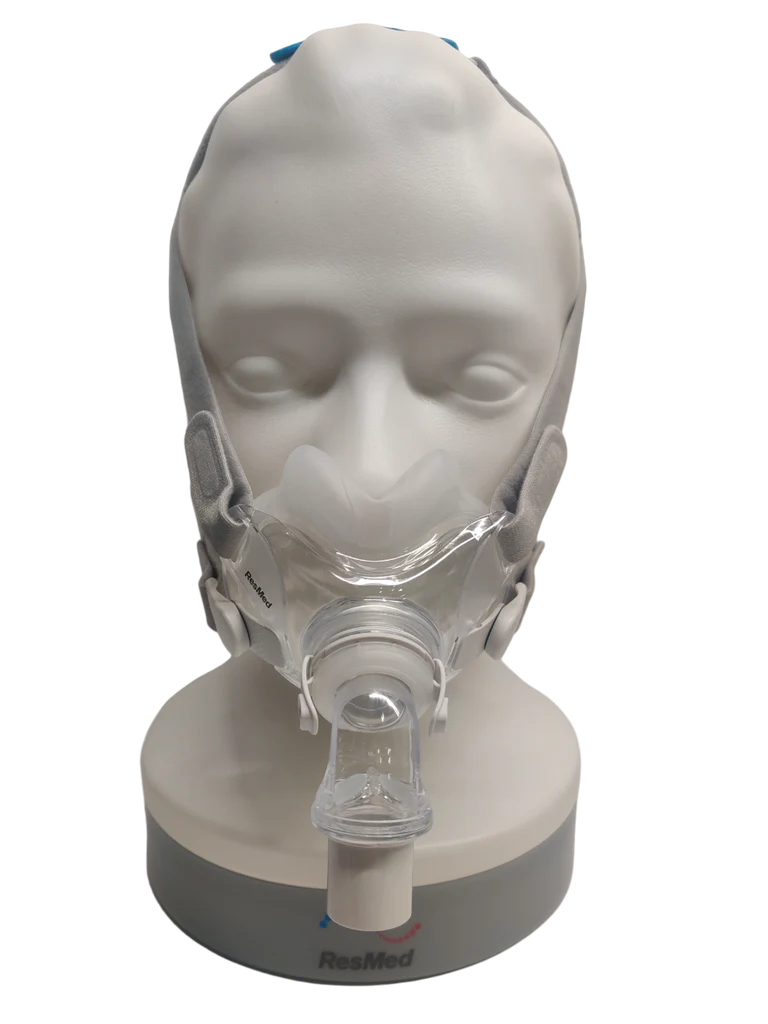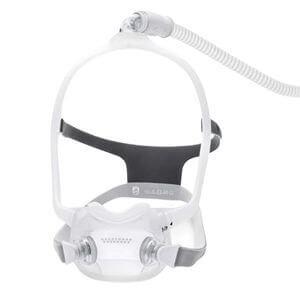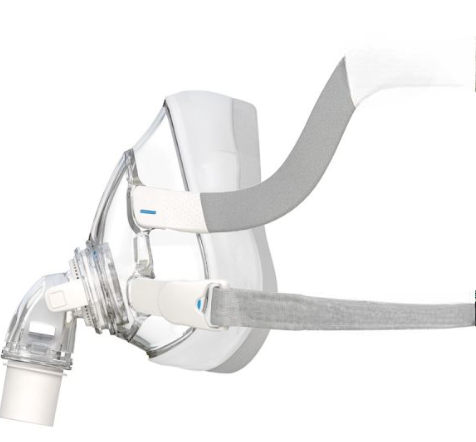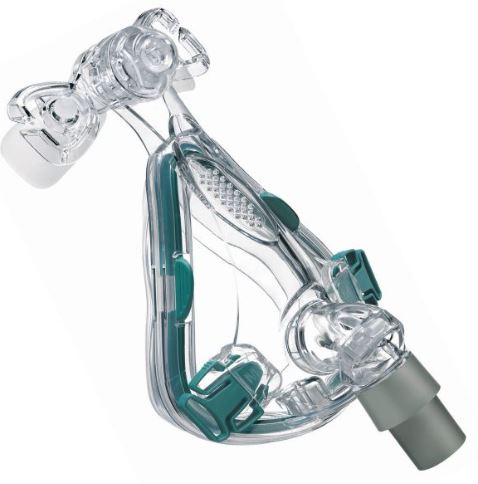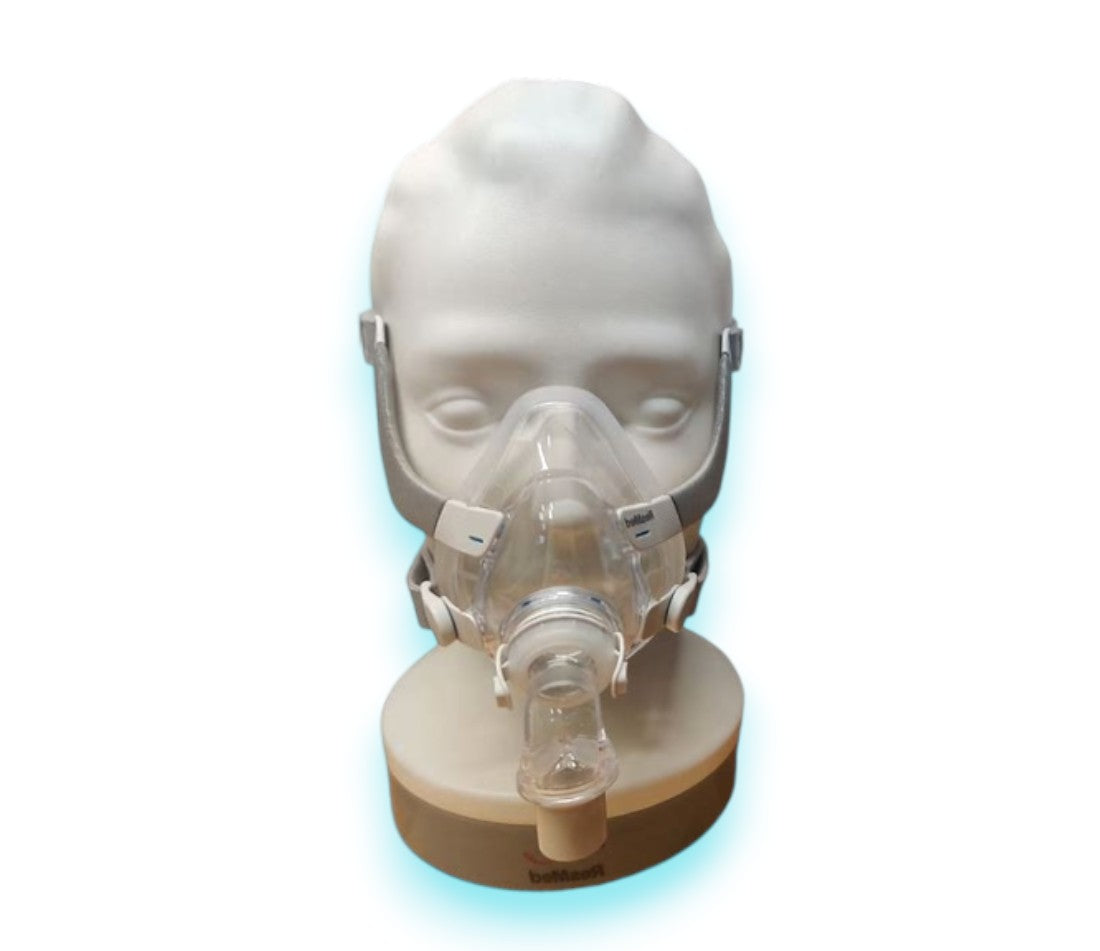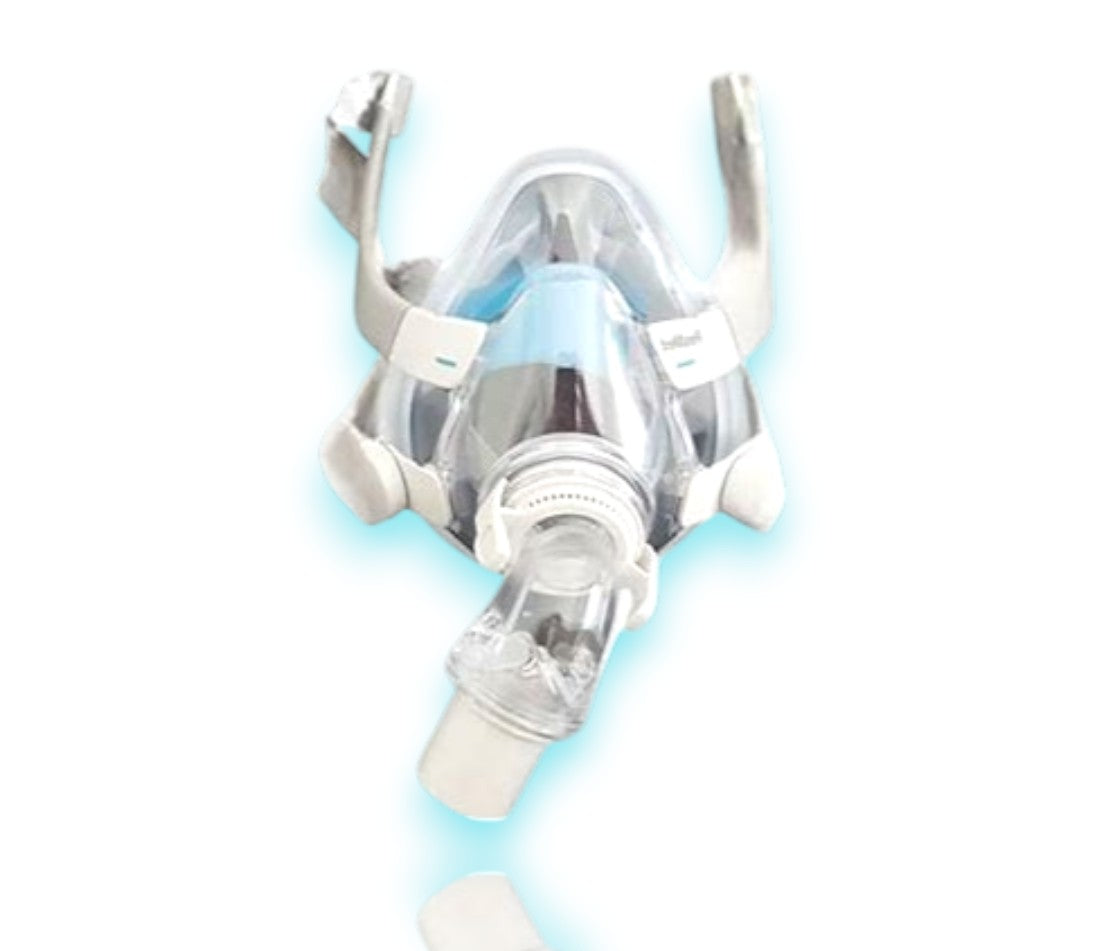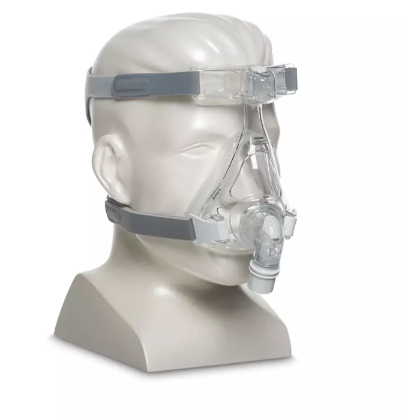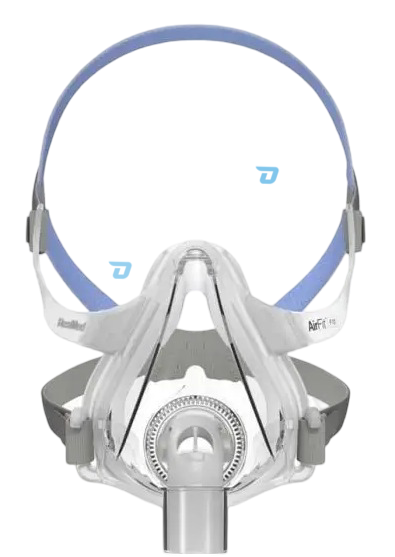Buy High-Quality CPAP Masks for Mouth Breathers
CPAP Masks for Mouth Breathers
Discover a new level of comfort and efficiency with our collection of CPAP masks for mouth breathers. These masks are specifically designed to meet your unique needs by providing comprehensive coverage of both the nose and mouth, ensuring that therapeutic pressurized air remains effective without escaping. With a strong focus on securing a comfortable fit, our assortment offers a wide... Read More
Best CPAP Masks for Mouth Breathers
If you are a mouth breather and suffer from sleep apnea, finding the right CPAP mask is crucial for effective therapy. CPAP masks for mouth breathers are designed to provide a secure seal, ensure comfort, and prevent air leaks that can disrupt sleep.
Why Mouth Breathers Need Specialized CPAP Masks
Mouth breathers face unique challenges when using CPAP therapy. Traditional nasal masks might not provide a sufficient seal, leading to air leaks, dry mouth, and ineffective treatment. CPAP masks for mouth breathers are designed to cover both the nose and mouth, ensuring that the pressurized air reaches the airway without escaping through the mouth. So, full face masks or total face CPAP mask is best for mouth breathers.
Benefits of Full Face CPAP Masks
Full face CPAP masks are ideal for mouth breathers because they:
- Covers your nose and mouth and offers a secure seal.
- Prevent air leaks and maintain the effectiveness of CPAP therapy
- Reduce the risk of dry mouth by ensuring that air is delivered through the mask
Best CPAP Masks for Mouth Breathers
Following are some of the CPAP masks best for mouth breathers:
Philips Respironics DreamWear Full Face CPAP Mask
Features:
- Innovative under-the-nose design
- Soft silicone frame for comfort
- Multiple cushion sizes for a personalized fit
Benefits:
- Reduces facial contact and pressure
- Provides a secure seal for effective therapy
- Ideal for mouth breathers looking for comfort and flexibility
ResMed AirFit F20 Full Face CPAP Mask with Headgear
Features:
- InfinitySeal™ cushion for a secure fit
- Soft and flexible frame
- QuietAir™ vent technology
Benefits:
- Ensures a reliable seal for all therapy pressures
- Reduces noise for a peaceful sleep environment
- Suitable for mouth breathers who need a dependable mask
Philips Respironics Amara View Full Face CPAP Mask
Features:
- Minimal contact design
- Universal size cushion
- Adjustable headgear with quick-release clips
Benefits:
- Provides a clear field of vision
- Reduces facial pressure and irritation
- Ideal for mouth breathers who prefer minimal contact
ResMed AirFit F30 Full Face CPAP Mask
Features:
- Ultra-compact design
- Minimal contact with the face
- Quick-release elbow
Benefits:
- Perfect for mouth breathers who need a low-profile mask
- Ensures a comfortable fit with minimal air leaks
- Easy to assemble, clean, and maintain
ResMed AirTouch F20 Full Face CPAP Mask
Features:
- Ultra-soft memory foam cushion
- Flexible frame
- Quick-release elbow
- Magnetic headgear clips
- QuietAir vent technology
Benefits:
- The full-face design ensures that air pressure is delivered through both the nose and mouth, preventing air leaks and ensuring effective therapy.
- The memory foam cushion provides a soft and comfortable fit, reducing the risk of skin irritation and pressure sores.
- The quick-release elbow and magnetic headgear clips make it easy to put on, take off, and adjust the mask, enhancing the overall user experience.
- The QuietAir vent technology ensures a peaceful sleep environment for both the user and their partner.
- The flexible frame and various size options ensure a secure and personalized fit, accommodating different facial structures and preferences.
What Causes Mouth Breathing?
Mouth breathing occurs when an individual primarily breathes through their mouth instead of their nose. This can be due to a variety of factors, both temporary and chronic. Understanding the causes of mouth breathing is essential for addressing the issue and finding effective treatment options, especially for those using CPAP therapy for sleep apnea.
1. Nasal Congestion
Nasal congestion is one of the most common causes of mouth breathing. Congestion can be due to allergies, colds, sinus infections, or nasal polyps. When the nasal passages are blocked, breathing through the nose becomes difficult, forcing individuals to breathe through their mouth for adequate airflow.
2. Anatomical Issues
Certain anatomical features can predispose individuals to mouth breathing. These include:
- Deviated Septum: A deviated septum, where the nasal septum is off-center, can obstruct airflow through the nose.
- Enlarged Tonsils or Adenoids: Particularly in children, enlarged tonsils or adenoids can block the nasal airways, leading to mouth breathing.
- Small Nostrils: Some individuals naturally have smaller nostrils, which can restrict nasal airflow.
3. Sleep Apnea
Sleep apnea, particularly obstructive sleep apnea (OSA), is a significant cause of mouth breathing during sleep. In OSA, the airway becomes temporarily blocked, often causing individuals to gasp for air through their mouth. CPAP therapy can help manage sleep apnea, but proper mask selection is crucial for mouth breathers.
4. Chronic Allergies
Chronic allergies can cause long-term nasal inflammation and congestion, making it difficult to breathe through the nose. Allergens such as pollen, dust mites, pet dander, and mold can trigger these reactions, leading to mouth breathing.
5. Habitual Mouth Breathing
In some cases, mouth breathing becomes a habit. This can start in childhood due to chronic nasal congestion or other issues and persist into adulthood. Over time, individuals may continue to breathe through their mouth even when there is no physical obstruction.
6. Stress and Anxiety
Stress and anxiety can also contribute to mouth breathing. During periods of high stress or anxiety, individuals may take shallow, rapid breaths through their mouth. This type of breathing pattern can become habitual over time.
7. Poor Oral Health
Conditions such as gum disease, cavities, and bad breath can sometimes cause individuals to breathe through their mouth. The discomfort from these oral health issues may make nasal breathing seem more difficult or uncomfortable.
Type of CPAP Mask Best for Mouth Breathers
1. Full Face CPAP Masks
Full face masks cover both the nose and mouth, making them ideal for mouth breathers. These masks provide a secure seal, preventing air leaks and ensuring that the pressurized air reaches the airway effectively.
2. Nasal Masks with a Chin Strap
Nasal masks can be used by mouth breathers if combined with a chin strap to keep the mouth closed during sleep. This combination helps maintain the effectiveness of CPAP therapy by preventing air from escaping through the mouth.
3. Hybrid CPAP Masks
Hybrid full face masks masks combine features of full face and nasal masks. They cover the mouth and have nasal pillows or cushions that fit under the nose. These masks provide a secure seal while offering minimal contact with the face.
Benefits of Using CPAP Masks for Mouth Breathers
1. Improved Sleep Quality
Using the right CPAP mask can significantly enhance your sleep quality by preventing air leaks and ensuring that you receive the necessary air pressure throughout the night. This consistent airflow helps maintain open airways, reducing interruptions and allowing for more restful and uninterrupted sleep. Better sleep quality translates to improved daytime alertness, mood, and overall cognitive function. A well-designed mask covers the mouth and nose effectively, ensuring the CPAP machine delivers the correct pressure throughout the night.
2. Reduced Dry Mouth
Full face CPAP masks and hybrid masks are specifically designed to address the issue of dry mouth, a common problem among mouth breathers. These masks deliver air through both the nose and mouth while sleeping, ensuring that air does not escape through the mouth. This helps to maintain moisture in the oral cavity, reducing the discomfort associated with dry mouth and preventing dental problems and throat irritation. By using a CPAP that keeps the mouth and nose covered, users can minimize dryness and enhance their comfort.
3. Enhanced Comfort
Masks designed for mouth breathers are typically more comfortable, incorporating features like soft cushions, flexible frames, and adjustable headgear. These design elements ensure a snug yet comfortable fit, making it easier to wear the mask for extended periods. The comfort provided by these masks encourages consistent use, which is crucial for effective CPAP therapy. Choosing a mask that suits your facial structure and preferences is essential for long-term comfort.
4. Effective CPAP Therapy
A secure seal and proper fit are essential for the effectiveness of CPAP therapy. Masks designed for mouth breathers ensure that the therapy is delivered efficiently, reducing the symptoms of sleep apnea. This can lead to improved cardiovascular health, reduced risk of stroke, and better overall well-being. Effective CPAP therapy also helps alleviate common sleep apnea symptoms such as loud snoring, frequent awakenings, and daytime fatigue. Using a type of CPAP mask that suits mouth breathers may significantly improve therapy outcomes.
5. Minimized Air Leaks
Masks for mouth breathers are designed to minimize air leaks, which is crucial for maintaining the prescribed air pressure and ensuring effective therapy. Reduced air leaks mean that the CPAP machine can function optimally, delivering consistent air pressure and preventing disruptions in therapy. This results in more stable and effective treatment for sleep apnea. A full face CPAP mask provides a comprehensive seal around the mouth and nose, preventing leaks effectively.
6. Customizable Fit
Many CPAP mask for mouth breathers come with adjustable features that allow users to customize the fit to their facial structure. This includes adjustable headgear, various cushion sizes, and flexible frames. A customizable fit ensures that the mask stays in place throughout the night, reducing the need for adjustments and improving the overall therapy experience. The right type of mask frame can enhance the stability and comfort of the mask.
7. Adaptable for Different Sleeping Positions
Masks designed for mouth breathers cpap are often adaptable for different sleeping positions, providing a secure fit whether you sleep on your back, side, or stomach. This flexibility helps maintain the effectiveness of the therapy regardless of how you sleep, ensuring that the airways remain open and clear throughout the night. The design of the mask covers both the nose and mouth, accommodating various sleeping styles. Improved Breathing For mouth breathers, using a CPAP mask that covers both the nose and mouth can significantly improve breathing during sleep. These masks ensure that the air pressure is delivered efficiently, keeping the airways open and preventing episodes of apnea. Improved breathing can lead to a reduction in sleep apnea symptoms and a better overall quality of life. Mouth breathers may find these masks particularly beneficial as they facilitate effective breathing patterns.
8. Prevention of Mouth Breathing
CPAP masks designed for mouth breathers can help train users to breathe through their nose, especially when used in conjunction with chin straps. This can be beneficial for those who habitually breathe through their mouth, helping to establish healthier breathing patterns over time and reducing the reliance on mouth breathing. Using a CPAP mask that encourages nasal breathing can enhance therapy effectiveness.
9. Durable and Long-Lasting
High-quality CPAP masks for mouth breathers are built to be durable and long-lasting. These masks are made from robust materials that can withstand daily use, ensuring that users get the most out of their investment. A durable mask provides consistent performance and reliability, contributing to the overall success of CPAP therapy. Refer to CPAP mask reviews and specifications to choose a durable option.
Tips for Using CPAP Masks for Mouth Breathers
1. Use a Chin Strap
A chin strap can help keep your mouth closed during sleep, preventing air leaks and ensuring effective therapy. It's particularly useful for mouth breathers using nasal masks.
2. Ensure a Proper Fit
A well-fitting mask is essential for preventing air leaks and ensuring effective therapy. Make sure to adjust the headgear and cushion for a secure and comfortable fit.
3. Clean Your Mask Regularly
Regular cleaning helps maintain the effectiveness of your CPAP mask and prevents skin irritation. Follow the manufacturer's instructions for cleaning and maintenance.
4. Adjust CPAP Settings
Work with your healthcare provider to adjust the CPAP settings to your needs. Proper pressure settings can help reduce snoring and improve the effectiveness of your therapy.
5. Monitor for Air Leaks
Check for air leaks regularly. If you notice any, adjust the mask or headgear to ensure a secure seal. Persistent leaks may require trying a different mask or cushion size.
Factors to Consider When Selecting a CPAP Mask for Mouth Breathers
1. Mask Fit and Size
Choosing the right mask size is crucial for a secure fit. CPAP masks come in various sizes, and it's essential to find one that fits your facial structure. A well-fitting mask prevents air leaks and ensures effective therapy.
2. Comfort and Cushion Material
Comfort is a key factor in CPAP therapy success. Look for masks with soft cushions made from materials like silicone or memory foam. These materials provide a gentle seal and reduce the risk of skin irritation.
3. Headgear Design
The headgear should be adjustable and comfortable. Look for masks with soft, flexible headgear that can be easily adjusted for a secure fit. Magnetic clips and quick-release features make it easy to put on and take off the mask.
4. Mask Ventilation
Some CPAP masks have quiet vent technology that reduces noise, making it easier for you and your partner to sleep peacefully. Masks with diffused vents are particularly beneficial for mouth breathers as they minimize noise and direct airflow away from the face.
Conclusion
Selecting the right CPAP mask is crucial for CPAP users who breathe through their mouth. A mask designed specifically for mouth breathers, such as the Amara View full face mask, ensures a comfortable and secure fit, preventing air leaks and improving the effectiveness of CPAP therapy. Traditional full face masks, nasal or nasal pillow masks, and hybrid masks each offer unique benefits, and it's important to discover the best option for your needs.
Using a CPAP mask is best for mouth breathers as it helps maintain proper air pressure and reduces symptoms of sleep apnea. The Paykel Simplus full face mask and the Respironics DreamWear full face mask are among the top face masks on the market, designed to provide optimal comfort and a secure seal. These masks cover the mouth as well as the nose, ensuring that air doesn't escape during sleep. Paykel healthcare masks are known for their high quality and innovative designs, making them a reliable choice for many CPAP users.
When wearing a mask, it's essential to consider the fit and comfort to ensure you can wear it throughout the night without discomfort. Discovering the best CPAP mask for mouth breathers involves understanding your specific needs and trying different options to find the perfect fit. Whether you're using a traditional full face mask or a hybrid design, the right mask will help you achieve better sleep and improved health. In summary, CPAP therapy without the right mask can be less effective and uncomfortable. Therefore, it's important to choose a mask that fits well, provides a secure seal, and enhances your overall therapy experience. By exploring various options and considering the specific needs of mouth breathers, you can find a CPAP mask that offers comfort, effectiveness, and improved sleep quality.
FAQs
Our committed team is available to support you through every step of your treatment journey.



